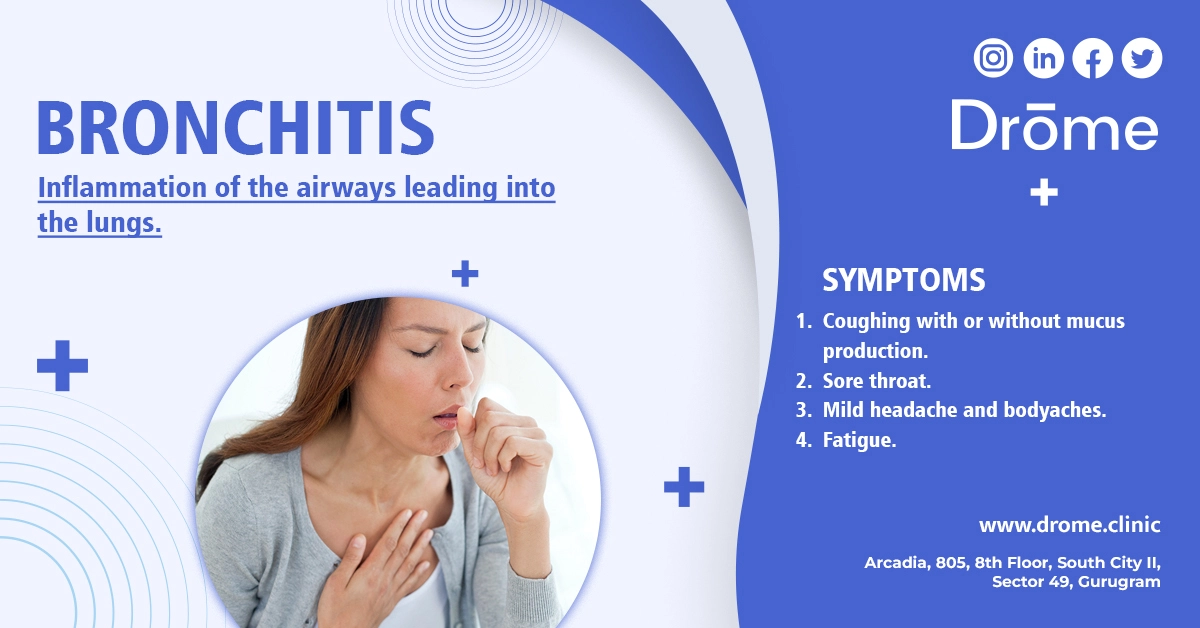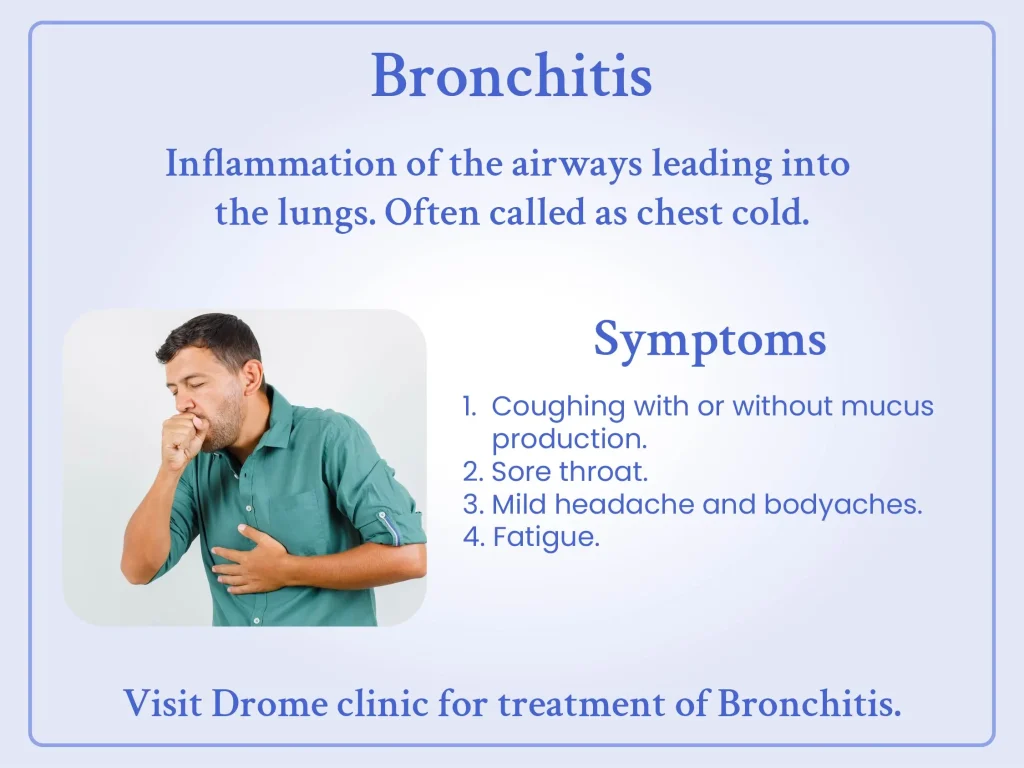Table of Contents
ToggleBronchitis may cloud the breath, but with knowledge and care, we can clear the skies of respiratory health.
Overview
Bronchitis is a prevalent respiratory condition that affects a significant portion of the population. It is an inflammation of the airways leading into your lungs. When the airways (trachea and bronchi) get irritated, they swell up and fill with mucus, causing you to cough.#
Types of Bronchitis
Acute Bronchitis:
Often resulting from a viral respiratory infection, acute bronchitis is a short-lived inflammation that generally resolves within weeks. Common colds or flu can evolve into acute bronchitis if the bronchial tubes become inflamed.
Chronic Bronchitis:
This is a more severe, long-term condition. Classified under the umbrella of Chronic Obstructive Pulmonary Disease (COPD), chronic bronchitis involves persistent cough and mucus production for at least three months in two consecutive years. It causes a cough that’s often called smoker’s cough.
Bronchitis Symptoms and Causes :
A persistent cough that lasts one to three weeks is the main symptom of bronchitis.Usually it leads to mucus production but a dry cough can also be present instead.
Wheezing and chest discomfort are common and a mild fever might be present.#
Causes :
Acute Bronchitis: Viruses, especially those causing flu and colds, are the main culprits for However, bacterial infections can also be a cause.
Chronic bronchitis: The main cause is cigarette smoking
Environmental factors like dust, fumes, and air pollution can also contribute.
Diagnosing Bronchitis:
Your healthcare provider can tell if you have bronchitis based on your health history and symptoms (clinical diagnosis).
There aren’t any specific tests to diagnose bronchitis, but you might be tested for other conditions. Possible tests include:
Chest X-ray: This helps distinguish bronchitis from other respiratory conditions like pneumonia.
Pulmonary Function Test: Measures how well the lungs are working, especially their capacity and efficiency.
Sputum Test: Analyses the mucus (sputum) to identify any presence of bacteria.
Blood tests: To look for infections
Management and Treatment
Acute: Generally, it requires symptomatic treatment.
Rest, staying hydrated, and over-the-counter medicines can help alleviate the symptoms. It’s essential to avoid tobacco smoke and other lung irritants.
Chronic: It involves –
Bronchodilators: Medications that help relax the muscles of the airways, improving breathing.
Inhaled Steroids: Reduces inflammation within the airways.
Pulmonary Rehabilitation: Structured programs that teach breathing exercises and offer patient education.
Oxygen Therapy: In severe cases, patients might need additional oxygen to breathe comfortably.
Prevention of Bronchitis:
Avoid Irritants: Primary prevention involves not smoking and steering clear of secondhand smoke and environmental pollutants.
Personal Hygiene: Hand hygiene can significantly reduce the transmission of viral infections.
Stay Healthy and get adequate rest
Vaccination: Make sure you are up to date on Flu and Pneumonia vaccines
Conclusion
Bronchitis, while common, can significantly impact one’s quality of life. By understanding its causes, symptoms, and treatments, individuals can better manage the condition and take proactive steps to maintain lung health.
Visit Drome Family Physicians for treatment
#cleveland clinic
Frequently Asked Questions
Can bronchitis turn into pneumonia?
While bronchitis itself is an inflammation of the bronchial tubes, complications or the presence of other infections can lead to pneumonia. It’s essential to monitor symptoms and seek medical attention if they worsen.
Acute bronchitis, often caused by viruses, can be contagious. However, chronic bronchitis, usually due to long-term exposure to irritants, is not.
How long does a bronchitis cough typically last?
For acute bronchitis, the cough can last for several weeks, even after other symptoms have subsided. Chronic bronchitis patients might experience a cough that persists for months or even longer.
Are smokers more prone to bronchitis?
Yes, smoking is a significant risk factor for developing chronic bronchitis. The irritants in tobacco damage the bronchial tubes over time.
Can you have bronchitis without a fever?
Yes, it’s possible to have bronchitis without a fever. However, a low-grade fever might accompany acute bronchitis in some cases.








